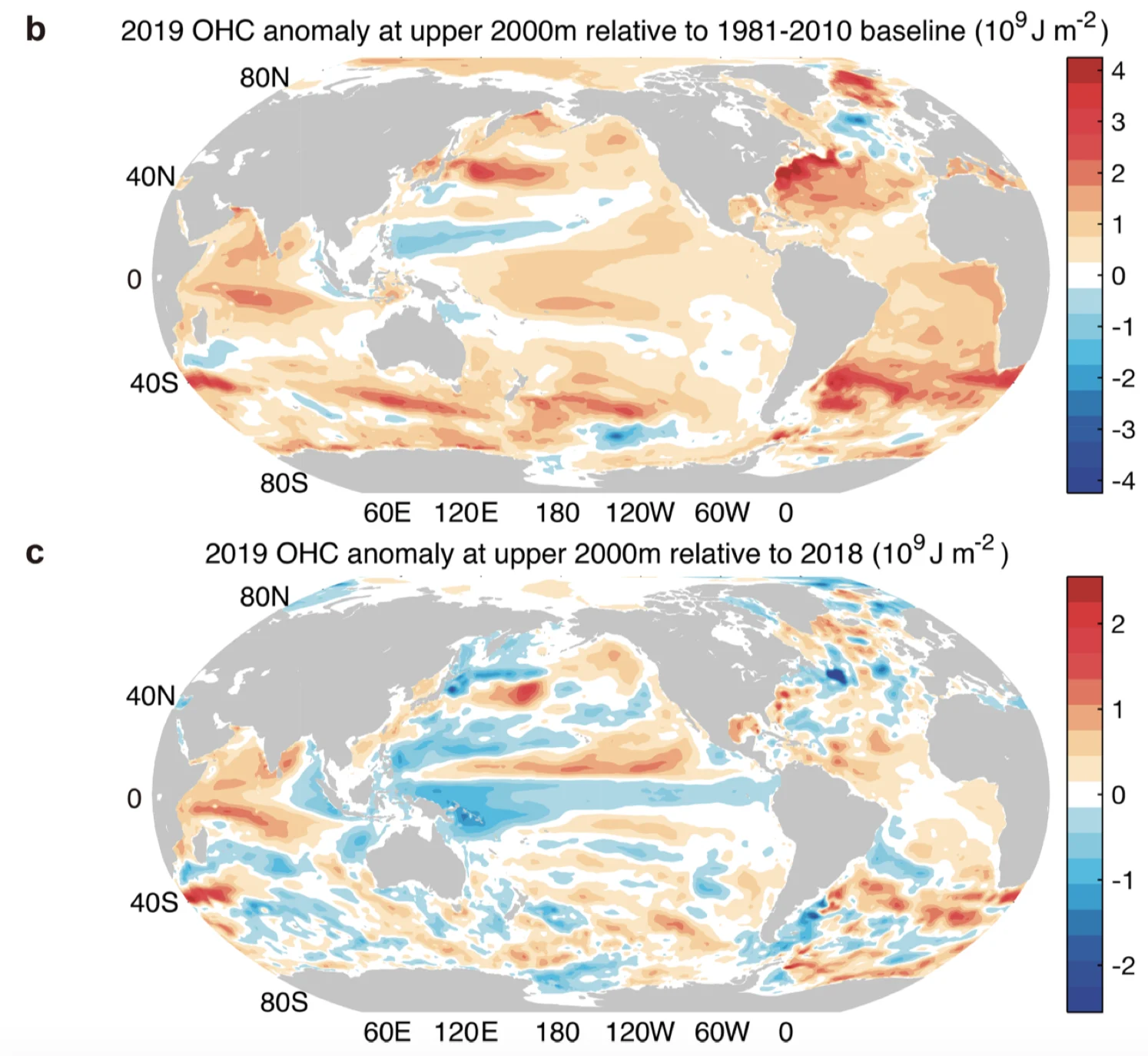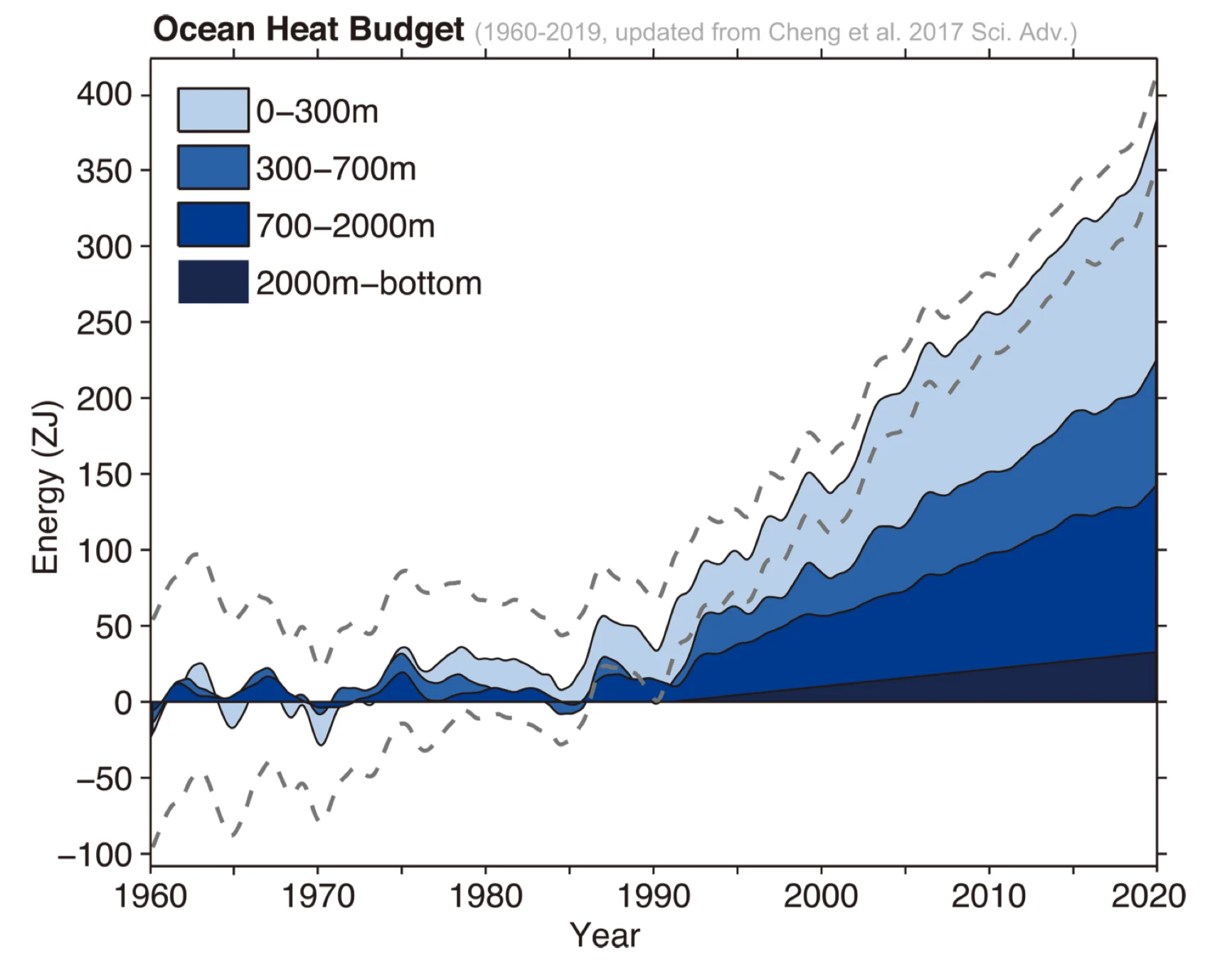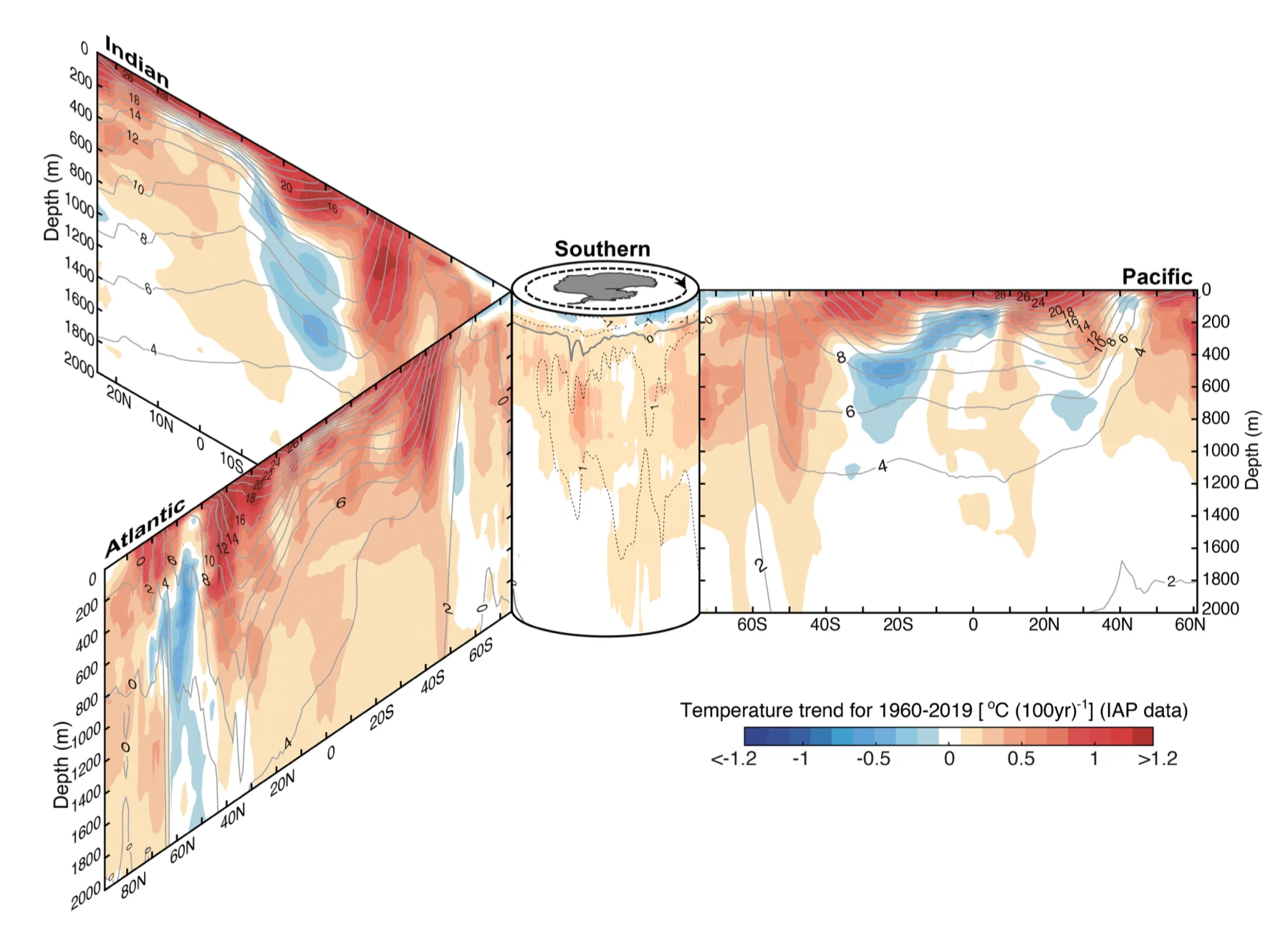
2019 saw record-setting ocean warmth: Why this matters
If the accumulation of energy in our oceans from greenhouse gas emissions continues to escalate at the rate observed in 2019, Earth’s climate will become more extreme than what we have already experienced this century.
We’ve known for quite some time that our oceans are warming, but what is especially concerning scientists is the rate at which this warming is occurring on a global scale.
A study published this week in the journal "Advances in Atmospheric Sciences" by scientists from several research centres around the world shows that ocean temperatures in 2019 were considerably warmer than prior years.
Using ocean heat content as the principal anomaly indicator, they found striking differences between the record-breaking temperatures of 2019 versus the previous warmest years 2018, 2017, 2015 and 2016. Data on sea surface temperatures date back to 1955.
RELATED: How plastic pollution is contributing to climate change
The record heat content measured in 2019 and previous years (especially between the surface and 2000 meters deep), follows the escalating trend also seen in atmospheric temperature records. According to NOAA, 2016 was the warmest year in terms of air temperature, followed closely by 2019, with the extra heat coming mainly from the presence of an intense El Niño phenomenon in the equatorial Pacific.
According to Kevin Trenberth, a scientist at the National Center for Atmospheric Research (NCAR), “although this anomaly was ocean water temperature related, all that excess energy from the ocean was eventually passed on to the atmosphere, making the year the warmest on record.”
Oceans have always been large sinks of different residual products generated by human activity, either solid or gaseous, as is the case of carbon dioxide. Since the mid-twentieth century, they have absorbed about 93 per cent of the excess energy generated by the now-infamous greenhouse gases, resulting from endless human activity.

Graphic: Ocean heat content anomaly in 2019 relative to 1981−2010 baseline (top) difference of Ocean heat content at upper 2000 meters between 2019 and 2018. Source: IAP data. From Cheng et al.
In 2019, the temperature of the ocean was 0.075° Celsius higher than the average for the period 1981-2010. According to Lijing Cheng, a researcher from the International Center for Climate and Environment Sciences in Beijing, China, "The amount of heat that we have introduced into our oceans over the past 25 years, is equivalent to 3.6 billion explosions of Hiroshima atomic bombs.”
Cheng also points out that "there are no reasonable alternatives that explain this sudden warming, apart from the emission of greenhouse gases that trap the energy generated by human activity."
To study how water temperature changes have been unfolding, Cheng and the rest of the team used all the available data obtained from an array of instruments aboard the 3,800 floats of the Argo system, spread across the oceans. Comparing the data recorded between 1987 and 2019, with that from the period 1955 to 1986, they were able to conclude that the oceans have warmed 4.5 times faster during the most recent period than in the previous one. The last 10 years of ocean temperature data have been the warmest since this type of record began in the 1950s.

Graphic: Ocean heat budget from 1960 to 2019 based on IAP analysis data from 0 to 2000 metres. Source: Cheng et al.
Michael Mann, professor of Atmospheric Sciences at Penn State University and one the researchers involved in the data analysis, highlights the rate of change of ocean temperatures in 2019: “We found that 2019 was not only the warmest year on record, it displayed the largest single-year increase of the entire decade, a sobering reminder that human-caused heating of our planet continues unabated.”

Graphic: Vertical section of the ocean temperature trends within 1960 to 2019 from sea surface to 2000 metres. Source: Cheng et al.
Even making every effort to reverse the effects of climate change, oceans have already absorbed more than 90 per cent of the excess heat produced by humans, and therefore will take longer to recover than the earth's surface and atmosphere, which have only had to deal with about 4 per cent. That small fraction has already had a significant impact on climate via global warming, exacerbating extreme events such as the fires we saw in the Amazon, California and Australia.
The question now is how much energy can our oceans continue to accumulate before reaching what many scientists refer to as the "tipping point of point of no return"? If the accumulation of energy in our oceans from greenhouse gas emissions continues to escalate at the rate observed in 2019, Earth’s climate will be more extreme than what we have already experienced this century.
HURRICANE SEASON IN ATLANTIC CANADA IS A DIFFERENT BALLGAME NOW:
Thumbnail image courtesy of Getty Images

